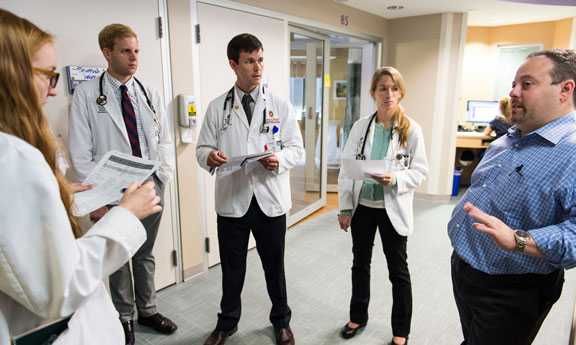Med students learn little about spotting, helping sex-trafficking victims
17 February, 2020

Doctors are in a distinctive position to identify and help victims of sex trafficking, but little is taught in medical school relating to this issue, a review paper suggests.
About 400,000 people in the U.S. are estimated to be affected by human trafficking, and research indicates that up to 88% of these have seen a healthcare professional for treatment throughout their exploitation, the authors write in the American Journal of Preventive Medicine.
But there is not enough discussion or education on the role doctors can play in assisting these women, children and men, lead author Jennifer Talbott, a third-year medical student at the Mayo Clinic Alix School of Medicine in Scottsdale, Arizona, told Reuters Health.
"As future health care providers, it's important we find out about trafficking early, instead of five or ten years into our careers when maybe a dozen victims have slipped past us unnoticed," Talbott, who worked with her faculty to develop coursework on this issue, said.
To assess what educational materials do exist for medical students, Talbott and colleagues searched medical journal databases, Google Scholar and other resources for conditions including "human trafficking," "sex traffic," "sex violence," "sex work," "education," "medical" and "undergraduate."
They uncovered 64 scholarly articles. But after excluding papers that didn't discuss human or sex trafficking, didn't target medical students or were thoughts and opinions pieces, they were left with just six. After adding in five papers discovered in other searches, that they had a complete of 11 educational resources on sex trafficking fond of medical students.
None of the resources was solely about sex trafficking, and less than half addressed legal considerations and preventing human trafficking. Eight resources discussed victims' treatment needs, provided screening tools and discussed health consequences of trafficking victimization, with five of the also discussing trauma and how doctors should talk with victims.
A comprehensive curriculum on human trafficking should ideally touch upon this is of trafficking, identification, intervention, treatment, referral to services, safety considerations, legalities and prevention, Talbott said.
The biggest challenge for medical students is the insufficient awareness, she added. "So a lot of my peers had either never heard about trafficking or had no idea about the magnitude of the problem and how often victims interact with healthcare providers."
While awareness is growing, it's slow in comparison to growth in reported rates of trafficking, the authors explain.
"Human trafficking could very well be arriving at light more now because healthcare professionals and the public are discussing it more," said Dr Asim Shah, professor and executive vice chair of psychiatry at the Baylor College of Medicine in Houston, who wasn't involved in the review.
The review authors require a standardized curriculum on sex trafficking to greatly help close the gap in medical education.
Creating such a curriculum can take time, however, said Kamila A Alexander of the Johns Hopkins School of Nursing in Baltimore, who also wasn't mixed up in review.
"Given the current structure of our health care system, having plenty of time to adequately assess and refer individuals experiencing trafficking is probable another big challenge," Alexander said.
However, teaching young doctors what to look for and how exactly to respond wouldn't normally take long, Talbott and colleagues write. Citing a 2014 commentary in JAMA Pediatrics, they advise all the details a medical student would have to know about trafficking could possibly be delivered in a one-hour lecture.
Shah suggests that for the reason that one hour, students ought to be taught to identify warning flag like unexplained injuries, signs of depression and anxiety, suicide attempts and malnourishment.
"They also have to know traffickers abuse patients and control them, so if you have an individual accompanied by a mature person who is not willing to leave the room, question it," Shah said in a phone interview.
Source:
TAG(s):
